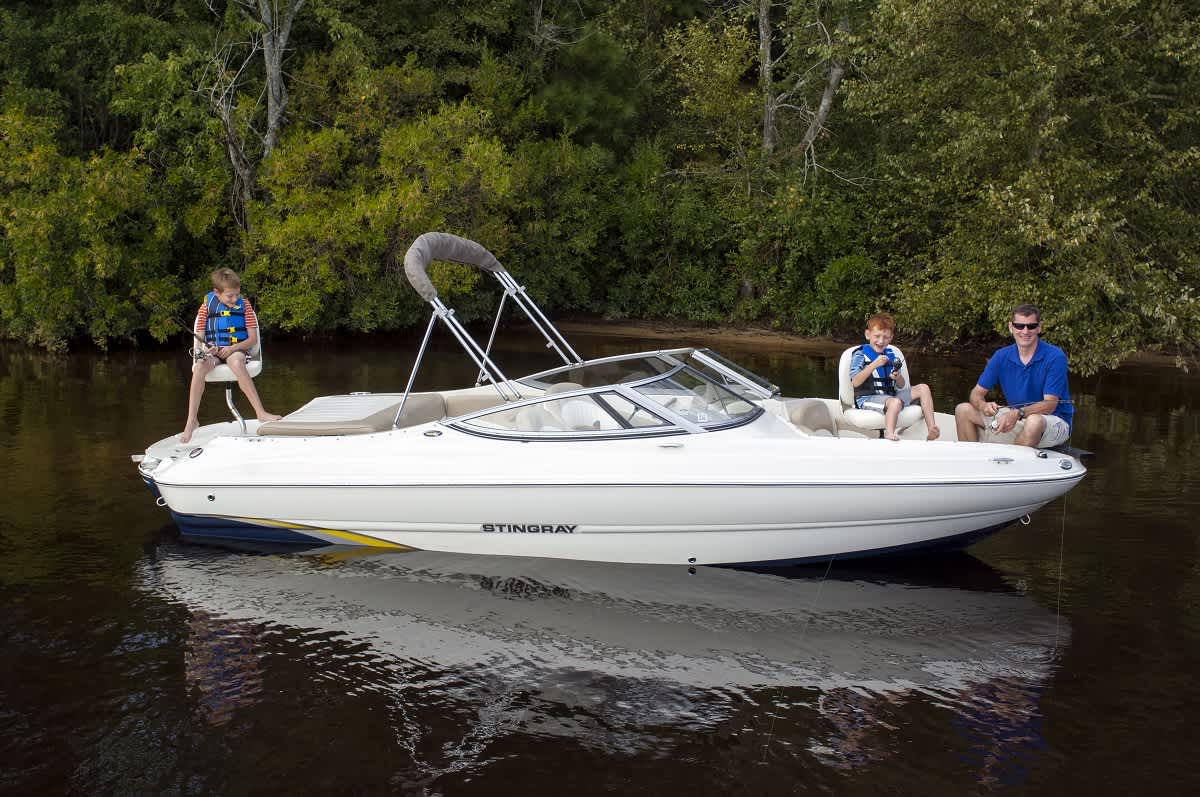Safe Fishing Tips for National Safe Boating Week
Dan Armitage 05.22.14

Fishing from a boat is one of the safest sports a family can enjoy, a point that is emphasized annually each May with National Safe Boating Week, which is underway as we speak. That said, there are some common-sense precautions that anglers of all ages should take to help make sure the next angling excursion is a safe and enjoyable one for all aboard—especially if the fishing party includes kids.
When fishing, the most obvious danger to all involved is presented by the water itself, and the threat of drowning. That’s especially true of youngsters, and why every child aboard a boat should don a properly fitting personal flotation device. Life jackets should be put on children as soon as they approach the waterfront. Many a youngster—including my own—has tripped on a boat cleat or slipped down a slick bank and found themselves in the water while fishing from shore or on their way to or from the boat.
Once aboard, some safety rules and responsibilities should be shared and understood. The boat operator, for example, should not be asked to split his or her time driving the boat and keep track of kids aboard. Each child aboard must be under the supervision of a responsible adult or sibling while the boat is underway, at anchor or at the dock. While underway, everyone should be seated, with hands and feet and fishing rod tips kept inside the boat, and at no time is running or rough play allowed aboard.
These are common boat safety practices that most families know to follow from experience. But you never want to take safety for granted, so it pays to review them each time someone unfamiliar with boating and fishing comes aboard.
As for the fishing itself, the tools of the trade can be significant threats if not handled in a safe manner. Hooks, for example, are the culprits featured in the majority of fishing injuries. That’s not surprising when you stop to think that the needle-sharp pieces of metal are designed to impale and hold anything they come into contact with. That makes hook management a top priority for those supervising children aboard a boat. Never leave hooks or lures containing them loose and accessible on tables, in open tackle boxes or elsewhere. Flashy spoons, brightly painted lures and gummy-worm-looking soft plastic baits act as beacons to small children who will want to grab them and are oblivious to the associated threat of barbed hooks.
Hooks on the line attached to the fishing rod are no less a threat, and a child swinging around a rod in the confines of a deck can represent a real threat to the eyes and appendages to all who surround the anxious angler. Make sure that rod-wielding youngsters realize that danger and those who are too young or energetic to grasp the responsibility should be closely monitored.
That’s especially true when casting. Before they are allowed to cast from a boat, I recommend beginning anglers of all ages practice their casting skills on dry land until they have a reasonable grasp on the technique before flailing away from a full deck. Rule number-one of casting is to have the angler look behind before each cast to make sure no one or no thing is in the way. Sunglasses serve double duty as eye protection from the sun’s damaging light rays and errant rod tips, lures, sinkers, and hooks.
Knives are another common fishing tool and should be kept sheathed and out of sight until needed, and put away and secured after each use.
Another popular tool among anglers that should be kept handy are needle-nosed pliers. Great for removing hooks out of fish’s mouths, they also are handy for removing hooks from two-legged catches—-especially when the point is sunk so deep that the barb must be cut off, using the pliers’ wire-snipping jaw feature.
Nearly invisible, fine-diameter fishing line can hurt kids whose hands or feet can become tangled in the monofilament, and friction-burns and cuts can happen when children (or adults) try to pull or break the line with their hands.
The fish themselves can harm kids who try to hold them grab in a manner that puts the child’s hands in contact with sharp spines, fins, or teeth. Use a net to land fish and never allow the catch to flop around on the deck, where fins and hooks can impale a foot or leg. I recommend a long-handled net when fishing from any boat, not only for its intended purpose but also because the net can be used to reach out and help anglers of any age who have fallen overboard.
Make sure when allowing a youngster to hold a fish for a photo that the slippery subject is held with both hands beneath the belly if it’s a toothy species, and with one hand under the belly supporting the fish and another securing it with a thumb in the mouth when holding a smooth-jawed fish for a snap-shot. Better yet, don’t risk a puncture or a dropped fish and leave the catch in the net for the angler to hold for the hero shot.
Finally, have a properly stocked first aid kit aboard for the mishaps that are certain to happen no matter how hard you try to prevent them. It should be well-stocked with antiseptic cream, a variety of waterproof bandage sizes, gauze and tape, tweezers, pain reliever, sunscreen, and insect repellent.
The best way to assure a safe fishing adventure for all aboard, especially when it includes children, is to remain vigilant and anticipate any actions that pose a threat before they end in injury. So get a kid aboard to celebrate National Safe Boating Week and hook ‘em up!

